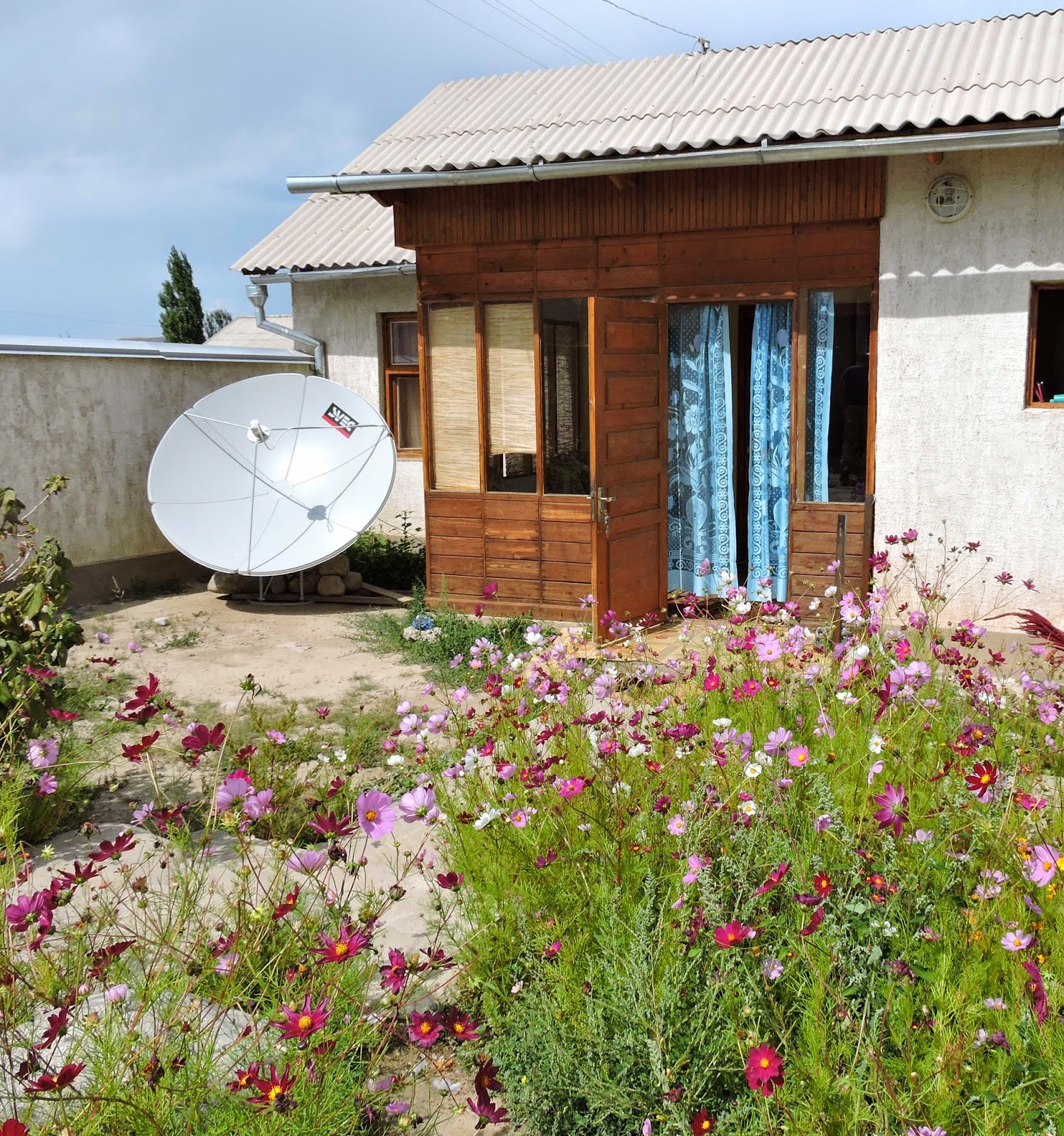 |
| village beside Issyk Kul Lake en route to Karakol, Kyrgyzstan |
Driving from Bishkek to Karakol is entering a different world, from modern city to remote villages, from urban conveniences (some) to yurts in high meadows. Although even Bishkek turns off its hot water supply in the summer, leaving urbanites with only cold water in their taps, many homes in rural Kyrgyzstan must go to the central village fountain for any water at all. While Bishkek is full of Toyotas, Mercedes and BMW's, villagers sometimes use donkey carts and beaten up tractors for transportation. Nonetheless, we've found wifi in the villages we've visited and a surprising awareness of the opportunities of the internet.
 |
| granddaughter of women's workshop founder |
Yesterday, we drove from Bishkek to Karakol, along the southern side of Lake Ishtakol, a very large lake formed by the uplifting of the Tian Shan mountains. These mountains are gorgeous, with many peaks over 15,000 feet, snow capped and glaciated.
 |
| wool waiting to be carded |
We stopped at one village to visit a women's workshop that makes felt from sheep's wool and turns it into beautifully embroidered felt rugs. This particular workshop has a contract with a Netherlands company to market their products in Europe. They employ 30 women, 20 who work in their homes and 10 in the workshop itself. First they must take the sheared wool and comb it, which they do in a filthy machine that kicks up so much dust you can't breathe. The wool, obviously, is very dirty, but doesn't get washed yet.
 |
| layers of wool |
Next step is layering the carded wool into 8 or 10 layers about 20 feet by 8 feet. This is layered on top of a reed mat, rolled and covered in canvas and put into a machine that repeatedly presses it under considerable pressure until the fibers have fused. The local farmers devised the machine. Once firmly packed, the package is unrolled from the canvas and matting, formed into a compact roll and washed with cold water to remove the dirt.
The final product is cut into appropriate sizes for rugs, died, embroidered and marketed. These rugs are sturdy and warm. They sell in the shop for $150 and in Europe for $1500, so the hard work of the women, while very important and profitable to them, does far more good for the sellers in Europe.
 |
| felt pressing machine |
 |
| washing the felt |
Leaving the workshop, we had lunch at the home of one of the women who is part of the felt rug cooperative. Several years ago, a Swiss NGO came to Kyrgyzstan to teach local families how to provide services for tourists, as there was (and still is) little tourist infrastructure here. These families were taught how to provide a clean and attractive environment in their homes, including Western toilets and amenities, and how to prepare meals for tourists. Many also learned how to provide basic but clean and comfortable lodging for travelers. We had lunch at one of these homes. The program has changed the life of this family, as you can see from the large dish outside their home.
 |
our hostess with granddaughter
home where we had lunch, with satellite dish |
Our guest house is one of these projects also. The Swiss taught the owners how to build a home that would be clean and welcoming for tourists. They inspect these guest houses frequently and continue to advise the owners. We stayed in the Green Yard Guest House, which looks like a Swiss chalet in the midst of the mountains (as this guest house is). It is spotless, has very comfortable rooms, good bathrooms, excellent food and comfortable common areas. This family also has prospered. They added 4 bedrooms to their first 4 and are now building 8 more.









No comments:
Post a Comment